
Tacoma museum shines a spotlight on the artistry of glass
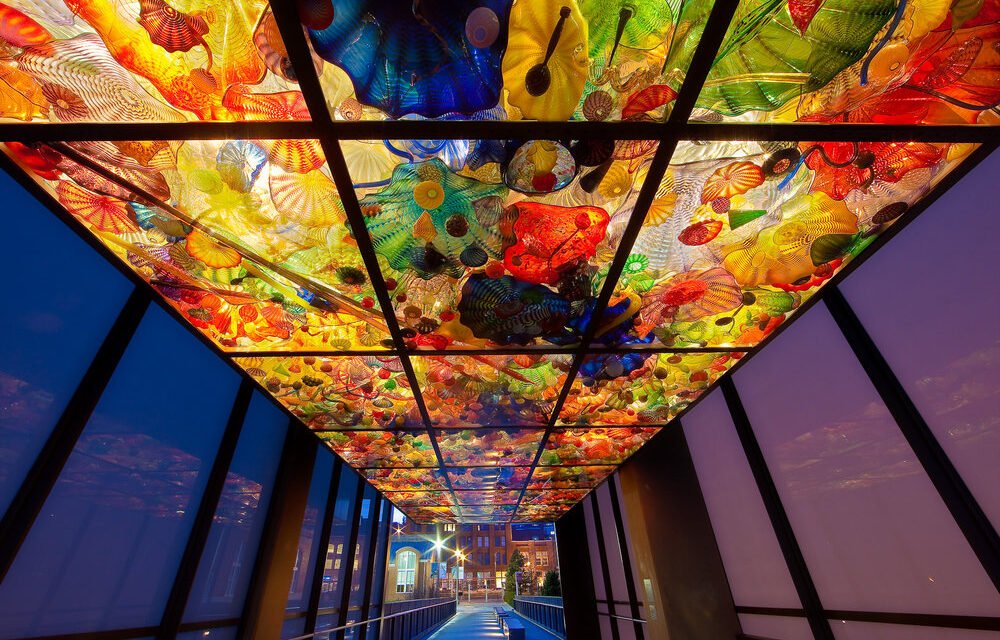
The first thing you’ll notice about Tacoma’s Museum of Glass is the ginormous cone. It rises ninety feet in the air like a futuristic smokestack and its tilted, stainless steel shingles glisten. Designed by internationally known architect Arthur Erickson, who was inspired by the sawdust burners that once dotted this region of Washington State, the cone contains a glass blowing studio where visitors can observe glass artisans at work. The cone is regarded as a symbol of Tacoma’s transformation from industrial center to cultural mecca.
The next thing you’ll note is Martin Blank’s magnificent outdoor glass piece, “Fluent Steps,” which spans the museum’s 210-foot long main plaza. This work is made from over 700 individual hand-sculpted pieces of glass and represents the artist’s interpretation of the many forms of water. And it’s a beaut!
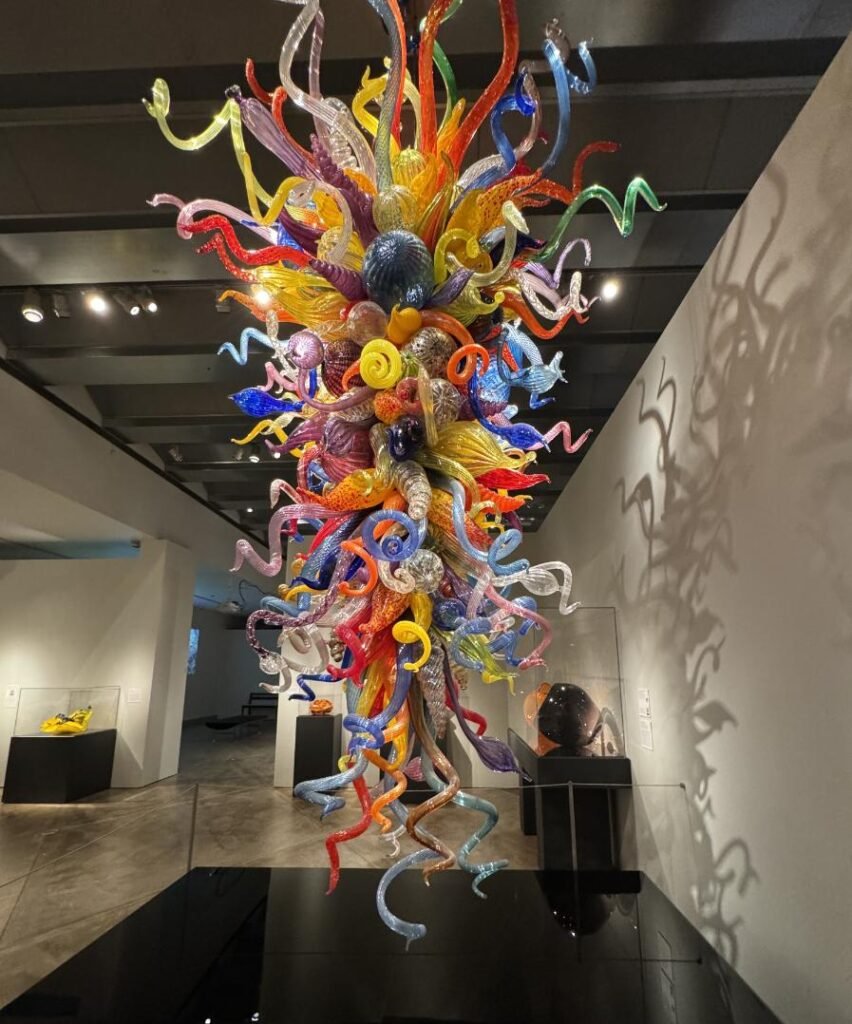
Chihuly’s Gibson Chandelier. Photo by Debbie Stone
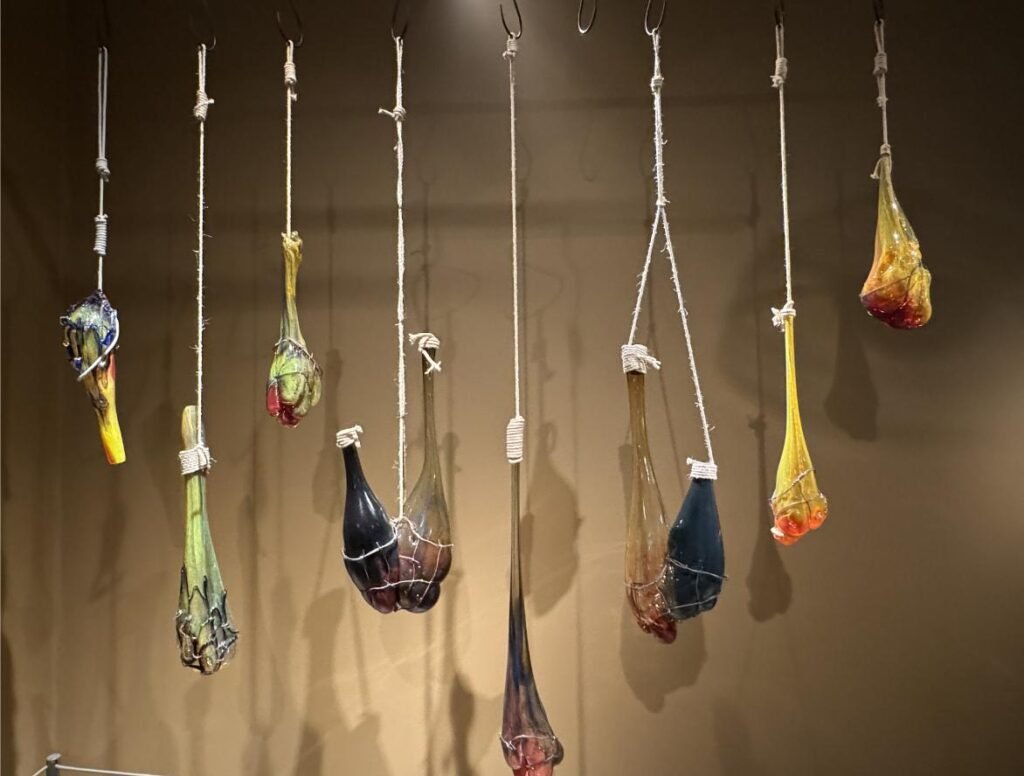
Chris Day’s Strange Fruit. Photo by Debbie Stone
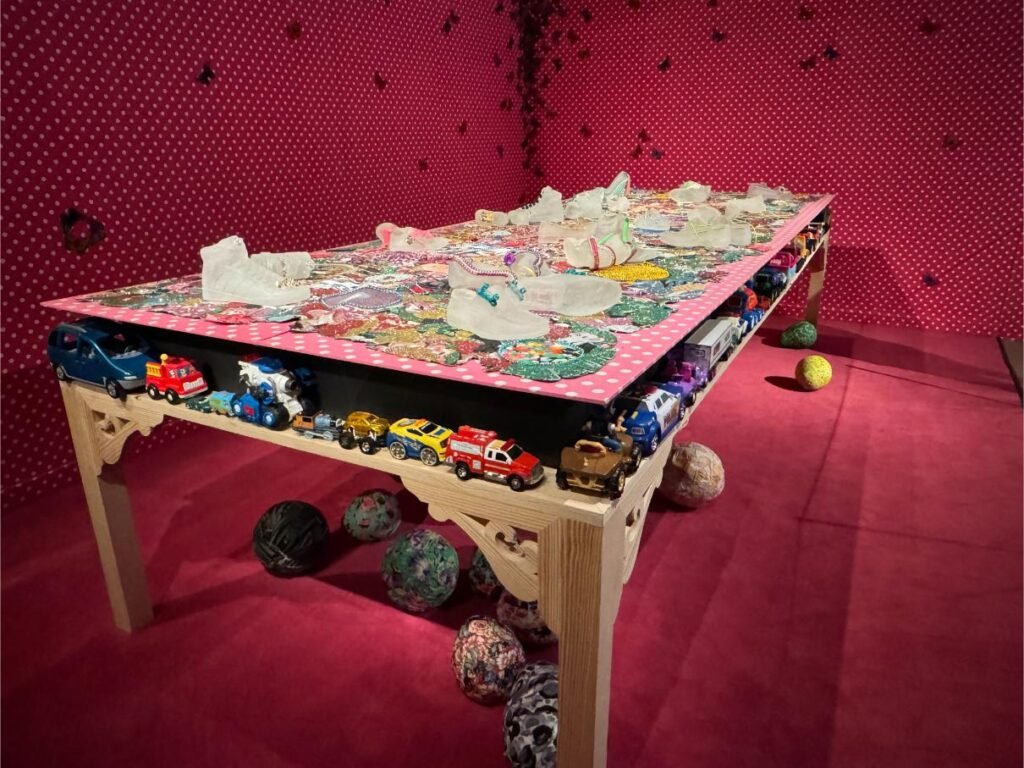
Ebony Patterson’s… and babies too…
Opened in 2002, Museum of Glass is rated one of the five top glass museums in the country and is a popular destination for both locals and tourists. Its prime location in Tacoma’s Museum District offers visitors the opportunity to explore six world class museums all within walking distance from each other. In addition to the Museum of Glass, you’ll find the Tacoma Art Museum, Washington State History Museum, LeMay – America’s Car Museum, Children’s Museum of Tacoma and Foss Waterway Seaport.
The museum connects to downtown via the stunning Chihuly Bridge of Glass, a 500-foot pedestrian walkway with three installations by Tacoma native and internationally renowned glass artist, Dale Chihuly. Chihuly is one of the pioneers in the Studio Glass Movement and a co-founder of the Pilchuck Glass School. Some of his work is on display in the museum, but if you want even more Chihuly, check out Chihuly Garden and Glass in Seattle. This excellent museum provides an in-depth look at the artist’s inspiration and influences, along with his drawings, signature glass series, large installations and his personal collections.
Museum of Glass is dedicated to all things glass and glassmaking and has established a reputation for its artist residencies, organizing and exhibiting nationally traveling exhibitions and its unique programs and activities for visitors. Its mission states that it “ignites creativity, fuels discovery and enriches lives through glass and glassmaking.”
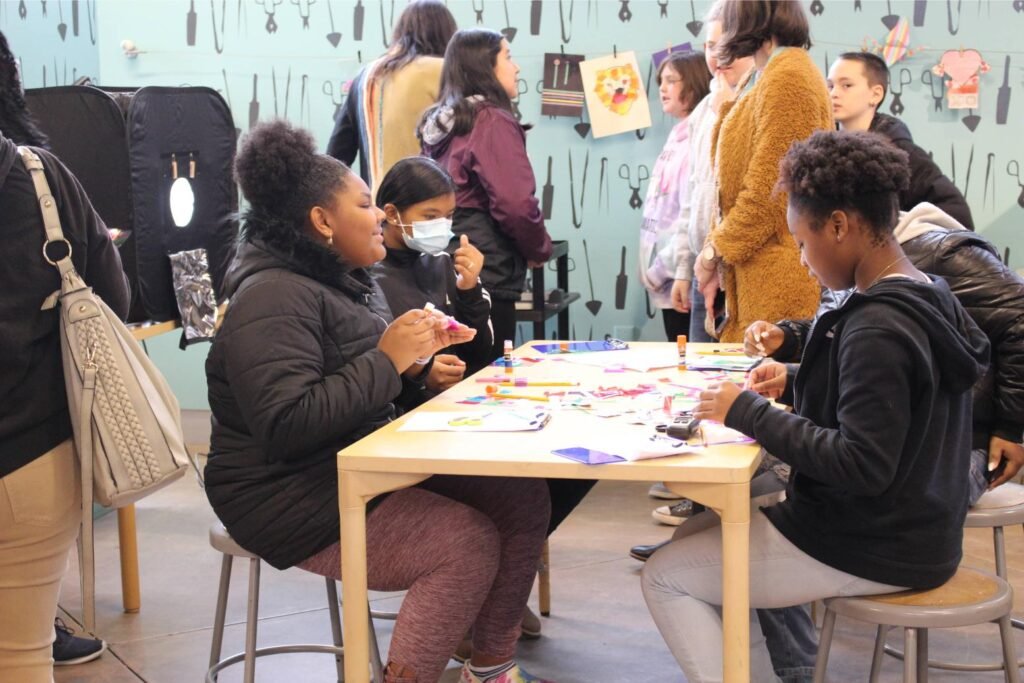
Hands-on art activity. Photo courtesy of Museum of Glass
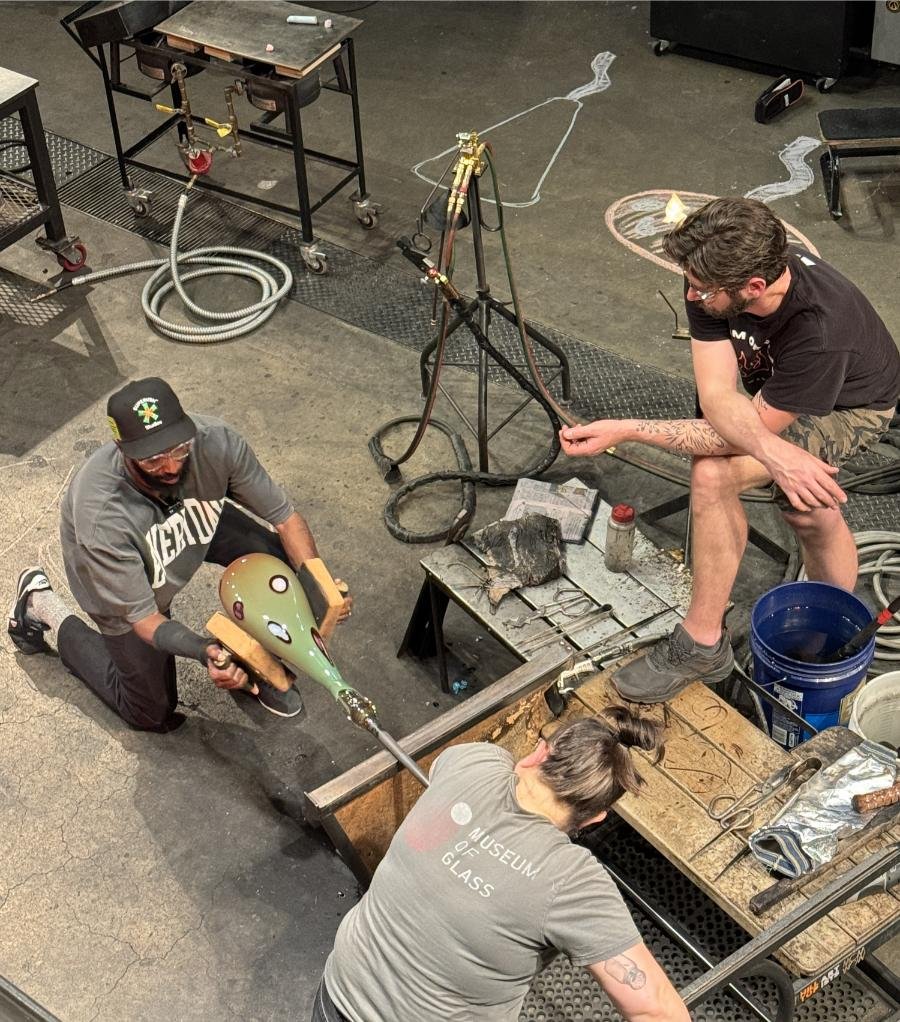
Creating in the Hot Shop. Photo by Debbie Stone
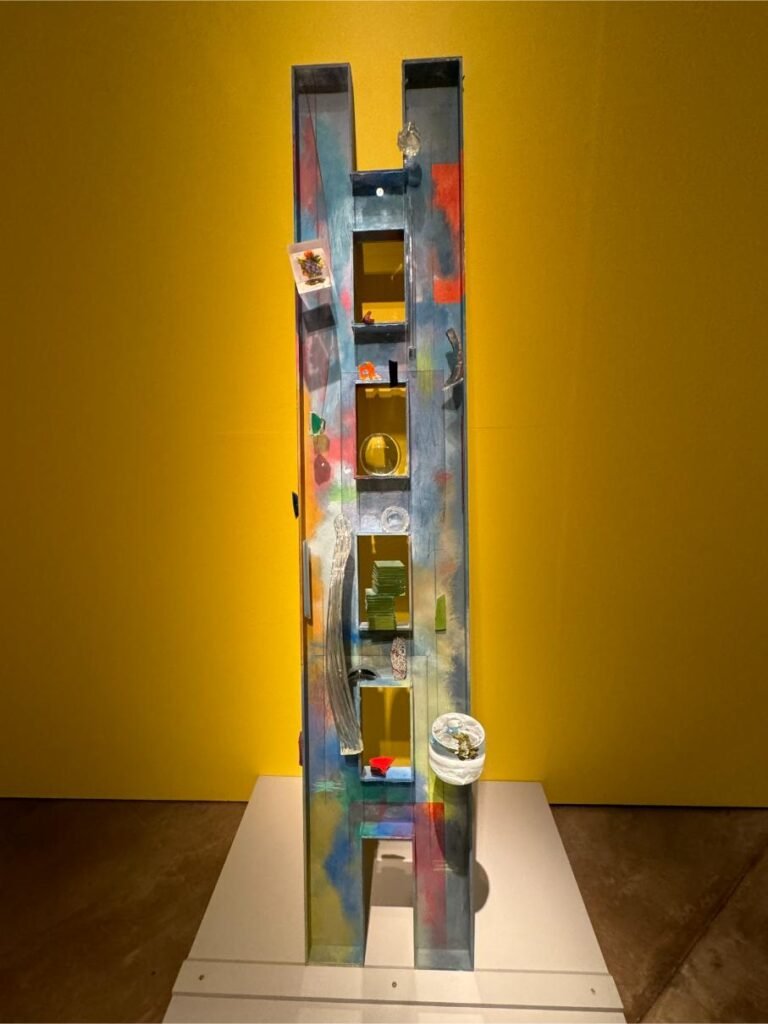
Ladder by Therman Stantom. Photo by Debbie Stone
The 79,000-square-foot building is an iconic cultural landmark and a work of art in itself. The structure features the use of concrete with glass in contemporary forms and seamlessly integrates into the environment. It rises in a series of platforms that ascend from the banks of the The Foss Waterway to a rooftop plaza with picturesque views of the city and waterfront.
This extraordinary museum houses 13,000 square feet of exhibition space, outdoor exhibition space, a 177-seat theater, studio for educational programs, the Hot Shop Amphitheater, and a museum store and café.
Galleries focus on both temporary exhibitions, as well as works from the museum’s permanent collections featuring 20th and 21st century glass. The aim is to showcase the diversity inherent to the material of glass and glassmaking techniques, while seeking to stimulate and engage audiences who may be unfamiliar with the art form.
Current exhibits include “A Two-Way Mirror: Double Consciousness in Contemporary Glass by Black Artists,” “The Salmon School,” “Spotlight on Chihuly” and “Illuminate.”
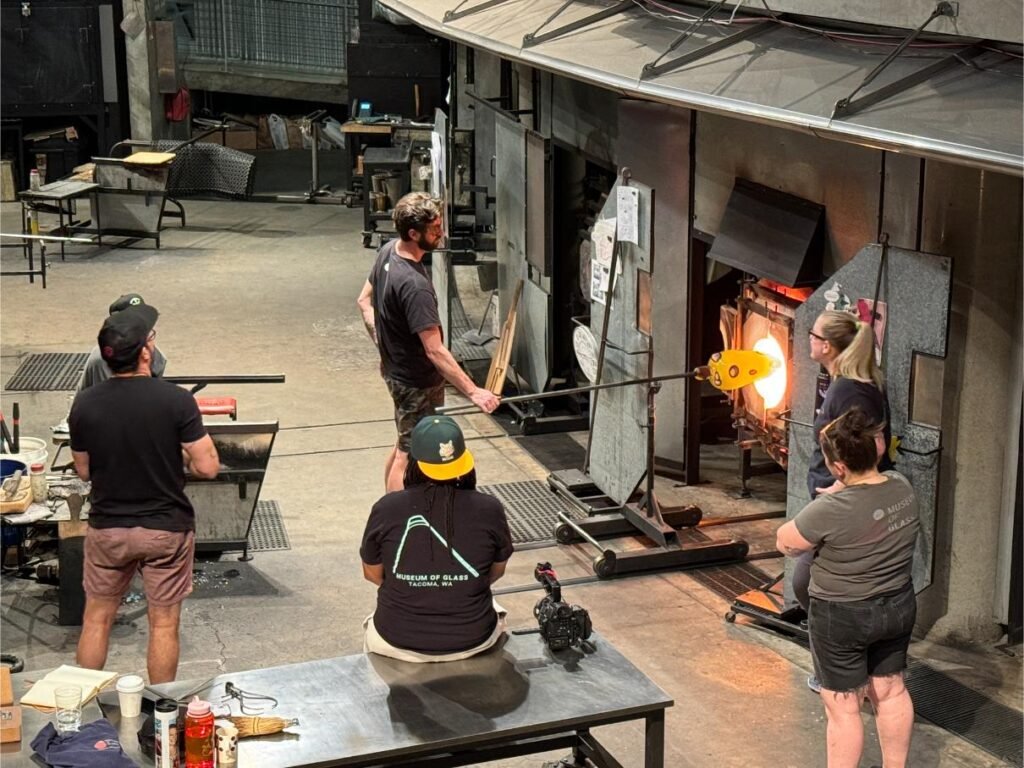
In the Hot Shop. Photo by Debbie Stone
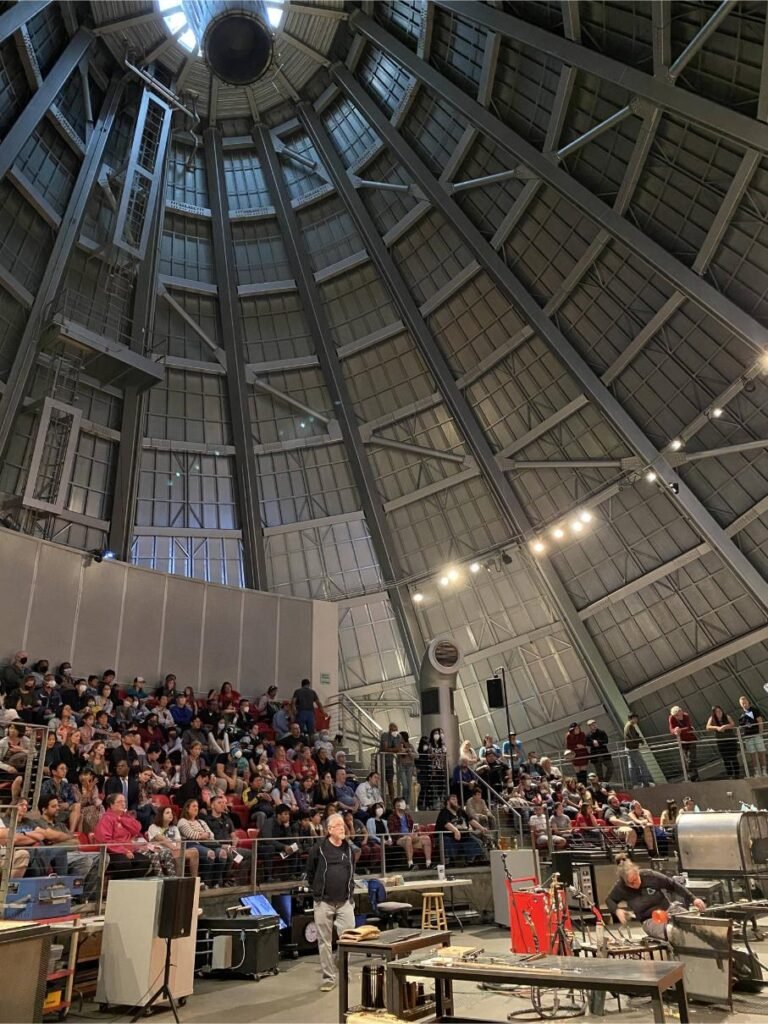
Hot Shop. Photo courtesy of Museum of Glass
In “A Two-Way Mirror,” the work from 23 contemporary Black artists, who have used glass to create work that “deconstructs social, cultural, gender and racial identity concerns,” are featured. The exhibit explains that historically marginalized people have typically been unable to access glass art due to a number of reasons, including the cost of production and racial oppression. The pieces on display, both abstract and representational, explore this inequity from the artists’ viewpoints. And glass, with its reflective and transparent qualities, serves as the ideal medium for these artists to examine their own lives and identities.
Visitors are drawn to the pieces, though they can incur uncomfortable reactions. Like Chris Day’s “Strange Fruit,” nine glass vessels that hang by the neck to represent the lynching’s of Black Americans during the Jim Crow era in the South. Or Radcliffe Bailey’s “Blue Black,” which features a blue-black glass heart dripping ink down a wall. The ink evokes indigo, the dye plant cultivated by slaves on Southern plantations.
And then there’s Ebony Patterson’s “…and babies too…,” an installation of children’s shoes cast in glass that appear to be playfully scattered on a surface with an assortment of toys below. After reading the description label, you learn that the objects actually represents the aftershock of some kind of trauma.
Conceptualized by artist Joseph Rossano, “The Salmon School” is an international, multimedia traveling art exhibition designed to focus on the sustainability issues facing wild salmon today. Rossano conceived of the work after seeing the effects of climate change on salmon and steelhead in his home rivers, the Skagit and Stillaguamish, north of Seattle.
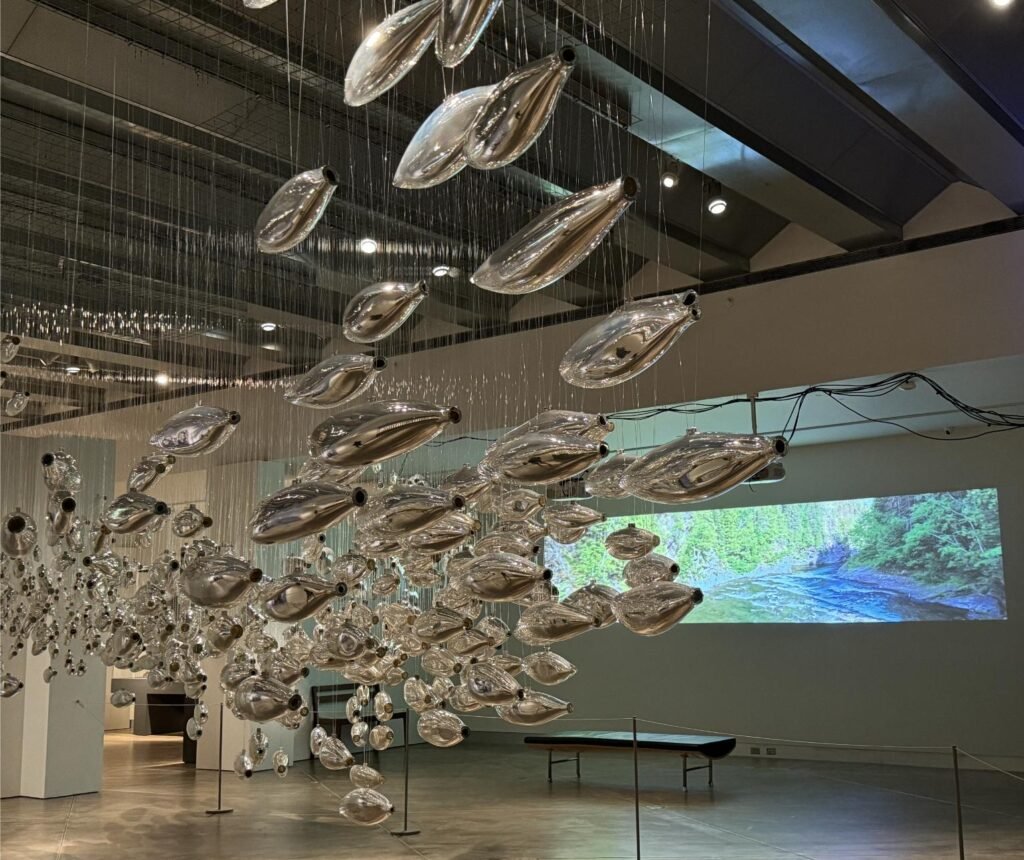
The Salmon School. Photo by Debbie Stone
This incredible installation consists of a life-size school of approximately several hundred mirrored salmon-like forms made from molten glass by artists from around the world. It’s accompanied by first-hand video accounts from well-known scientists, artists and indigenous peoples.
Videos of rivers near and far, where the salmon could have come from, adorn one of the walls. With the reflection from the water, the shimmering glass fish look like real salmon and you can almost feel them flowing down the river.
The exhibition was first exhibited at the Bellevue Arts Museum in Bellevue, WA, in 2019 under the name “SCHOOL.” Since then, it was renamed “The Salmon School” and has been traveling the globe. The hope is that this work will motivate communities to address these pressing issues and the global phenomenon of climate change.
“Spotlight on Chihuly” celebrates Chihuly’s perspectives on glass with examples of some of his most recognizable series from the museum’s permanent collection. “Gibson Chandelier” is the showstopper and takes centerstage in the gallery. It’s a gorgeous piece accenting color, texture and shape, composed from a combination of extra glass pieces used in other projects.
Families will particularly enjoy “Illuminate,” an exhibition for early learners and their grown-ups that melds art, science and play. Visitors learn about color, light, reflection and shadow through various pieces that can be touched, moved, played with and used to make their own creations. It’s a wonderful chance for kids to get hands-on experience, especially in a glass museum!
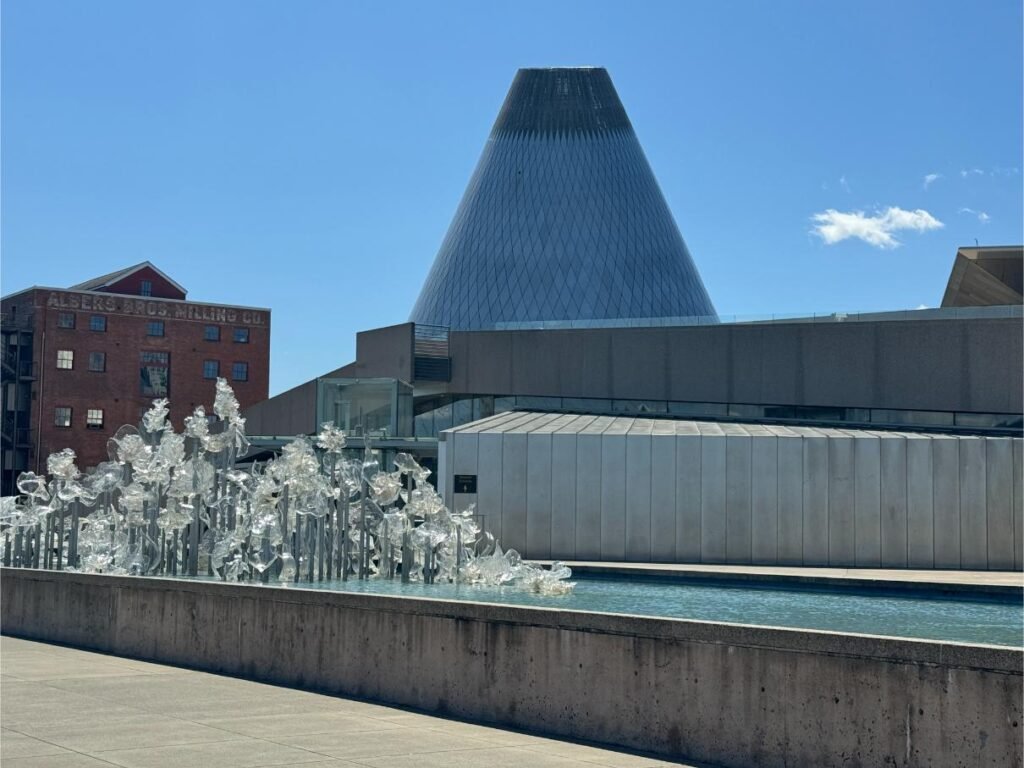
Museum of Glass. Photo by Debbie Stone
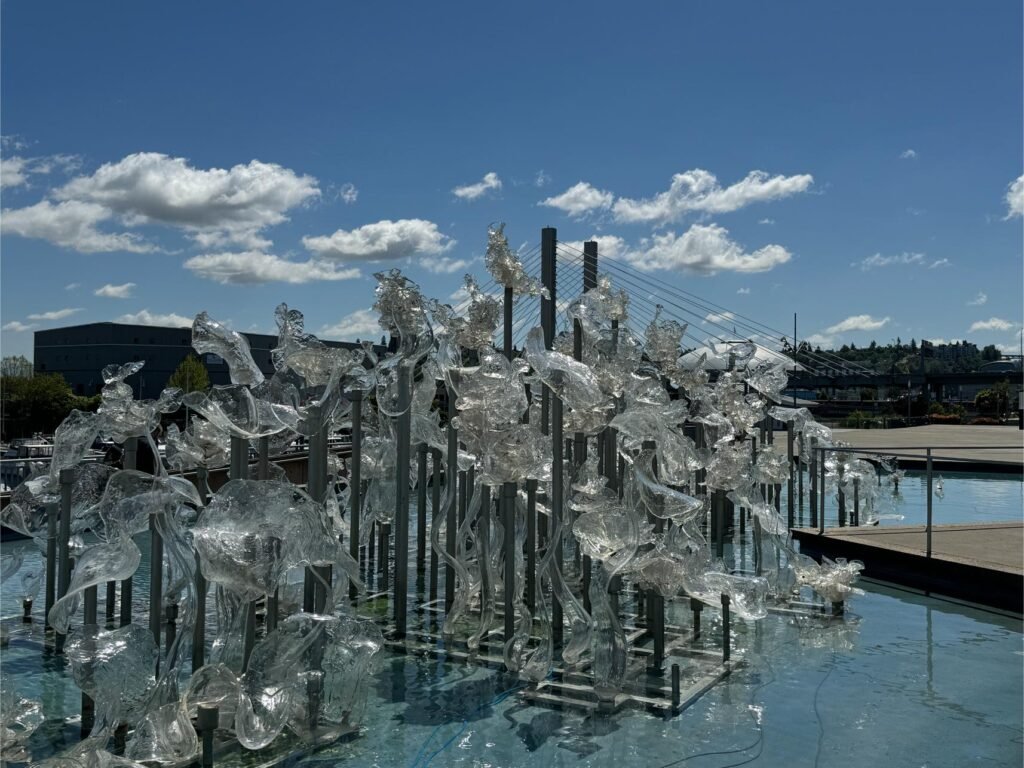
Martin Blank’s Fluent Steps. Photo by Debbie Stone
The highlight of a visit to the Museum of Glass, however, is watching glass artists at work in the Hot Shop Amphitheater. Glassblowers in residence create pieces with the assistance of the Hot Shop team, while a narrator describes the process and answers questions. The museum hosts these artists year-round and some of the work they do onsite will make it to its permanent collection.
Over the two furnaces is a large screen projecting the work and providing facts about the glass-making process. The action captivates viewers, many who spend much time sitting in the amphitheater and observing the scene from project start to finish.
The museum also offers education and outreach programs– everything from classes and lectures to films, workshops, a hands-on art studio and gallery talks. It’s an opportunity to delve deeper into this art medium and perhaps get inspired to do some creating of your own.
If you’re looking for a bit of glass to take home as a souvenir, head to The Museum Store, which has everything from affordable glass trinkets to fine art pieces, as well as items for kids, books and more.
There’s also an onsite café to sate your appetite with a variety of breakfast and lunch offerings, along with a coffee bar for that must-have mid-morning or mid-afternoon jolt of caffeine.
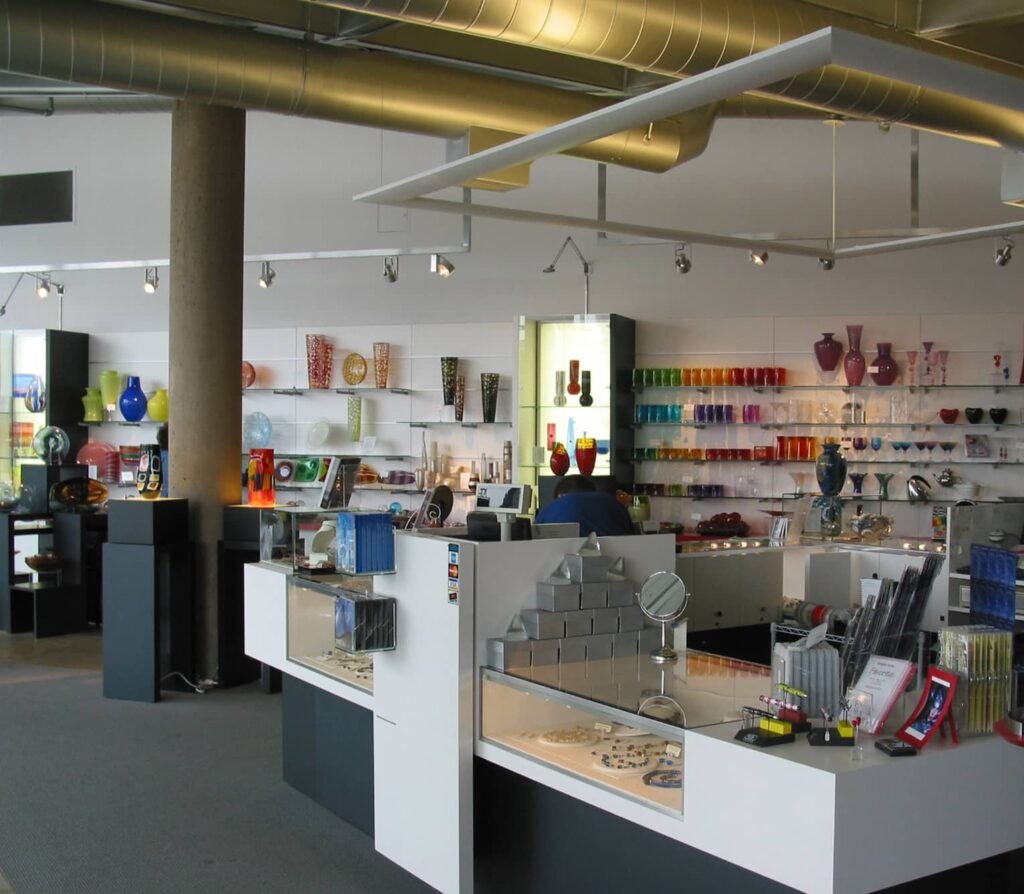
The Museum Store. Photo courtesy of Museum of Glass
Feature Photo Chihuly Bridge of Glass. Photo courtesy of Mahesh Thapa
Discover more from Luxe Beat Magazine
Subscribe to get the latest posts sent to your email.




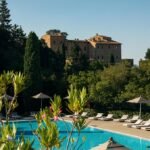
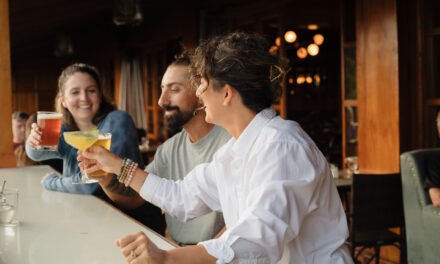
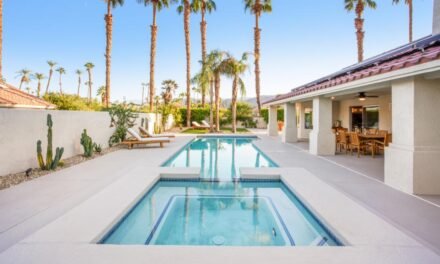
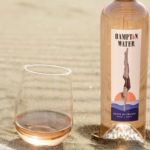



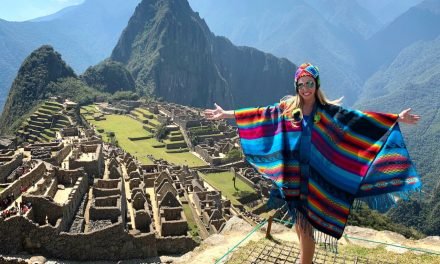
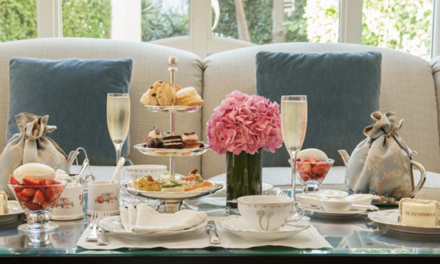
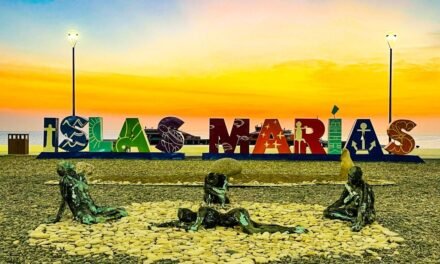

You must be logged in to post a comment.